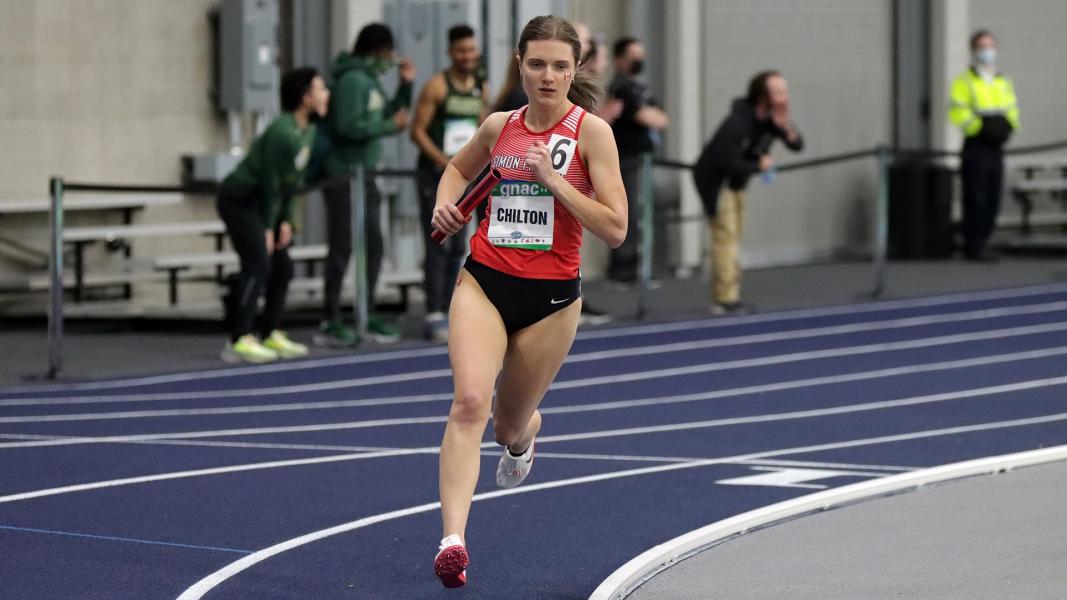
As a student-athlete, I work hard to balance my athletic, academic, and personal commitments. In my final year at SFU, I decided to add co-op to the mix. Happily, this addition was not only manageable but also extremely rewarding. In this blog post, I will debunk some myths regarding co-op and athletics, and provide tips that helped me to achieve balance during my work terms.
There are some common misconceptions about co-op and athletics that may prevent student-athletes from pursuing their co-op designation. I draw on my own experiences as a co-op student to debunk a few of those myths here:
Myth 1: Athletes are not eligible to compete while on a co-op work term.
Fact 1: A student-athlete who is enrolled in the co-op program and completing a full-time co-op placement can still be eligible to compete. (I completed a co-op in the SFU Injury Prevention and Mobility Lab during my senior cross-country season!) Student-athletes who are considering co-op should communicate with their academic advisors and coaches to ensure that they are fulfilling their eligibility requirements.
Myth 2: Employers are unwilling to accommodate student-athlete training and competition schedules.
Fact 2: The two employers I worked with were both very supportive of my athletic pursuits! With help from the co-op office, I was able to negotiate flexible hours that fit my schedule. When searching for a co-op placement, be open with potential employers about your athletic commitments. Some employers may offer hybrid or remote work, which can be a great option for student-athletes who are traveling.
Myth 3: Employers don’t want to hire student-athletes.
Fact 3: Participation in sports can help you develop valuable skills including work ethic, motivation, and resilience (to name only a few). Reflect on your personal strengths as an athlete and use these to your advantage in your co-op job search and placements.
It can be challenging to balance your time and energy between work, athletics, and personal commitments. Here are a few strategies that helped me achieve balance during my co-op work terms:
Communicate early and often: Your supervisor is there to support you! Keep them updated on your progress and ask questions as necessary. If available, you can also learn a lot from the expertise and mentorship of your more senior co-workers. Similarly, keep your coach and academic advisors updated on your co-op plans, as these may impact your athletic eligibility and financial aid.
Be proactive: Keep a detailed calendar or planner to keep track of your work and athletic commitments. If you will be absent from work, take the initiative and develop a plan to stay on track with your hours and tasks.
Be where your feet are: Focus on the task at hand. When you are at practice, enjoy the exercise and time with your teammates. When you are at work, be engaged and focused on making the most of your co-op experience. If you have the option to work remotely, find a quiet space and set time aside for focused work. When I have a lot going on, this compartmentalization technique helps me maintain a sense of balance and purpose.
Reflect on your progress: In sports, reflecting on past performance can provide valuable information for improving future performance. The same is true in the workplace! Take the time to celebrate your successes and learn from your mistakes. If you are unsure of your performance or would like advice on how to improve, ask your supervisor for feedback.
Enjoy yourself: I am grateful every day for the opportunities I have had as a student-athlete at SFU. When things get busy, try to remember what excites you about your work and your sport. A grateful outlook makes the hard work more meaningful and enjoyable!
I encourage all my fellow student-athletes to learn more about the co-op program and to consider how co-op might enhance their undergraduate experience. If you have any questions, reach out to the co-op office, or ask a teammate about their co-op experience!
















